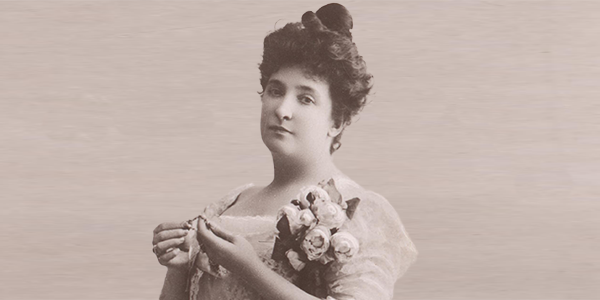
“More farewells than Dame Nellie Melba”
Posted on March 11, 2024 By Colin
I WANT TO LET EVERYONE KNOW that I am back at work. After trying to retire twice, I have found that vaping advocacy is more addictive than I thought.
Professor Ron Borland calls me the Dame Nellie Melba of Tobacco Harm Reduction for my failed retirement efforts. Dame Nellie (pictured above) was a famous Australian soprano who is remembered for her "seemingly endless series of 'farewell' appearances in the 1920s".
Part of my motivation is selfish. I get enormous satisfaction from seeing smokers make the switch to vaping. Vaping has the potential to save the lives of millions of people. I can’t think of many things more worthwhile for public health than vaping advocacy.
And I do think our advocacy is working despite powerful opposition. There is every chance that Mark Butler’s flawed vaping Bill will be rejected in the Senate later this month.
Why we will win...
Mr Butler wrongly believes that he can force vapers into compliance by increasing enforcement and policing for his prohibitive approach. However, experience has shown that:
“Enforcement and border control efforts have minimal long-term impact on the supply of drugs in the community. In fact, when substances are banned, suppliers find more creative ways to hide and sell their products, which leaves the buyer at a higher risk of buying unsafe, unregulated products of unknown quality and potency” (Australian Health consultancy group 360Edge)
Alcohol prohibition in the US “was a failure on all fronts”. Criminal syndicates controlled the market and thrived. It led to disastrous health consequences with deaths from alcohol poisoning and overdoses from dodgy alternatives. Many drinkers switched to dangerous alternatives such as opium and cocaine.
The “War on Drugs” has failed to reduce illicit drug supply and use. It has serious consequences including criminalising users; huge policing and enforcement costs; tainted and impure products; increased drug potency causing overdoses and poisonings; higher prices; violent gang wars and deaths; corruption; and incarceration.
Increased violence is an inevitable consequence of drug prohibition. This is clear from from Australia’s vaping ban which has led to an escalating cycle of intense criminal activity, drug wars, firebombings, extortion, and public killings.
Bans also violate the human right to the best possible health and are a social justice issue, harming people from marginalised and disadvantaged populations most of all.
On the other hand, regulation of vaping can reduce risk by enforcing quality and safety standards. The black market will diminish if easy access to legal products is available. Licensed retail sales will also reduce youth access, as for tobacco and alcohol.
What YOU can do
One of my greatest frustrations is the lack of active engagement of Australia’s 1.7 million vapers in fighting for their rights. Vapers are passionate about vaping, but only a small number are actively advocating for change in Australia.
However, regulation of vaping is a political decision and politicians in a democracy are strongly influenced by the views of their constituents. Enough adults vape to have an enormous influence over policy-making and you need to be heard.
Some things you can do are
- Join the Australian Smokefree Alternatives Consumer Association (ASACA), the consumer advocacy group
- Write to or visit your federal member of Parliament and Senators, explaining why vaping is so important to you and how it has improved your health
- Contact your state MPs, as change can still come from state governments
- Contact the media via radio or print whenever an opportunity arises
Mark Butler’s flawed prohibitive model will fail, but in the meanwhile it is doing enormous damage to public health. The sooner it is changed the better.
Go to Top